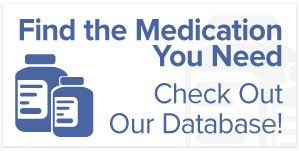Opioids are a commonly prescribed class of pain relievers. They’re used to treat conditions like cancer, arthritis and back pain. There’s no doubt that opioids can be very effective for controlling your pain, but they do come with risks that must be considered.
What Are Opioid Analgesics?
Opioids interact with the body’s opioid receptors to provide relief from symptoms such as pain, cough suppression, diarrhea reduction, constipation reduction and sedation/sleepiness. The term “opioid analgesic” refers specifically to prescription medications that fall into this category—namely Percocet®, Vicodin® (hydrocodone) or OxyContin® (oxycodone).
There is no scientific consensus on what constitutes an opioid analgesic; however, most medical professionals agree that any drug derived from the opium poppy plant qualifies under this definition. This includes heroin—a highly addictive illegal substance often mistaken for synthetic opioids such as OxyContin® or Vicodin®—as well as common over-the-counter products like acetaminophen combined with codeine.
Morphine is the Most Common Opioid Analgesic
Morphine is a strong pain reliever that can be used to treat a wide range of conditions, including pain and fractures. Morphine is also an effective way to relieve severe pain after surgery. There are many different types of morphine, but all are derived from opium poppy plants and share the same basic chemical structure.
In general, morphine acts on neurons in your brain that control pain perception. If you feel no pain upon using morphine, it means that this part of your brain has been deactivated by its action on these receptors.
Opioid Analgesic Attributes
Most types of opioid analgesics are available in both short-acting and long-acting forms. Short-acting drugs such as morphine, hydromorphone, oxymorphone and fentanyl need to be taken every 4 to 6 hours, while long-acting ones like methadone and buprenorphine can last for 24 hours or more.
The duration of action is the time during which an opioid remains active in the body before it is excreted. In general, short acting opioids have a shorter duration of action than long-acting opioids, because they are metabolized more quickly by your liver enzyme system.
This means that you need to take more frequent doses of short acting opioids if you want pain relief throughout the day or night so that you don’t experience withdrawal symptoms such as restlessness, muscle aches etcetera.
Opioid Analgesic Can be Powerful Pain Relievers
Opioid analgesics, also known as opioid pain relievers or narcotics, are powerful drugs that can be highly effective in treating chronic and acute pain. They work by activating the same receptors in the brain that respond to naturally occurring chemicals called endorphins. These chemicals help control your perception of pain and stress response.
Opioids have been used for thousands of years as a form of medicinal treatment for acute and chronic pain; however, opioids are also highly addictive when misused or over-prescribed. The misuse of prescription opioids has become an epidemic in the United States with more than 52 million people misusing prescription opioids at some point during their lifetime. In fact, it is estimated that 2 million people in the US abuse or misuse opioids every year.
The primary reason why opioid medications are so addictive is because they activate reward centers in your brain by affecting dopamine levels – this produces feelings of pleasure or euphoria that make you want to use them again. People who get addicted to these drugs often experience withdrawal symptoms if they stop taking them which can lead them back into drug seeking behaviors.
Conclusion
The information above is not intended to replace a doctor’s care and advice. We hope that this article has helped you understand more about opioids, but if you have questions or concerns about your own health, please see a medical professional.
The Rx Helper is a patient assistance program that can provide low-cost and even free medication to uninsured patients. There is no limit to the number of medications we can help you with!



